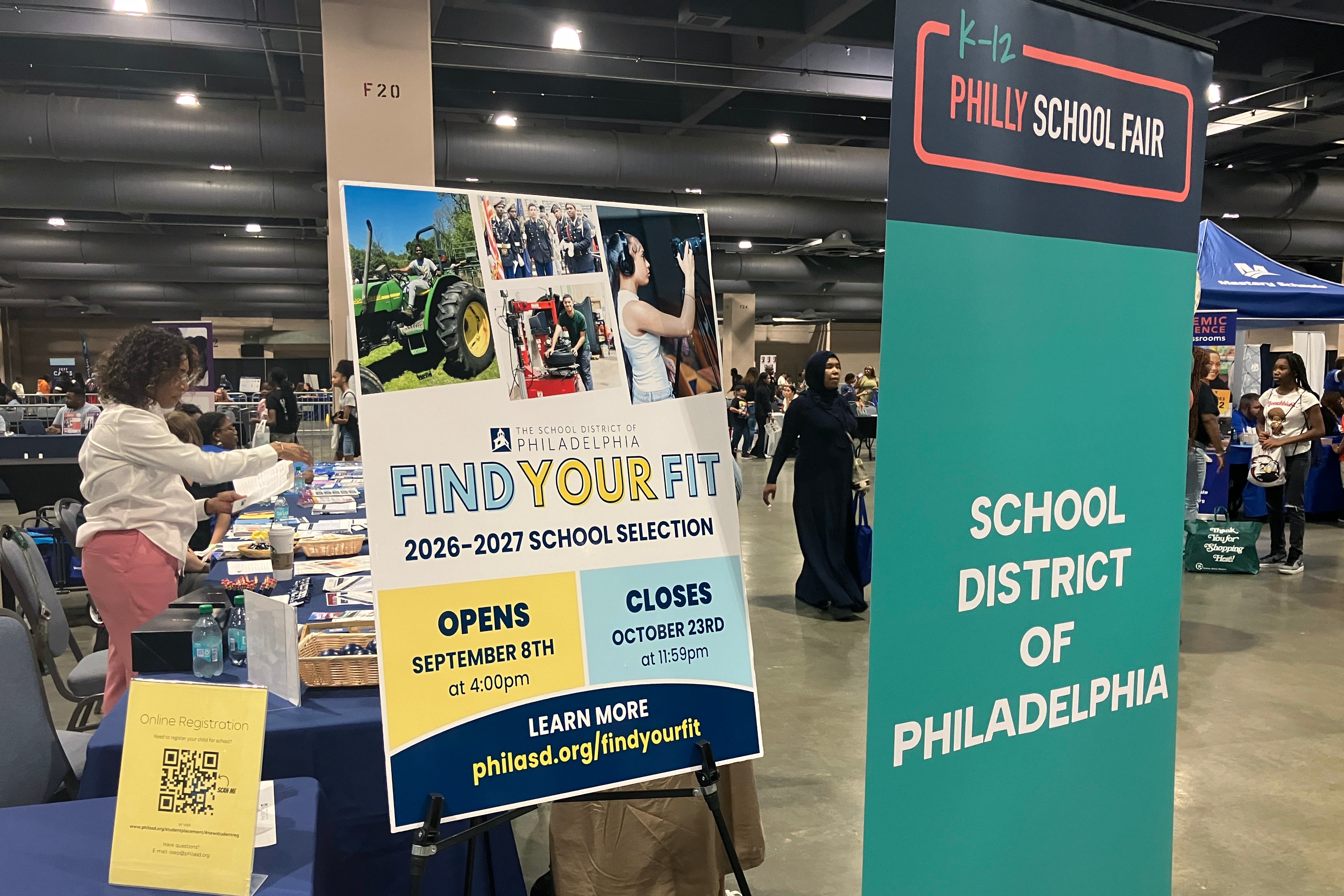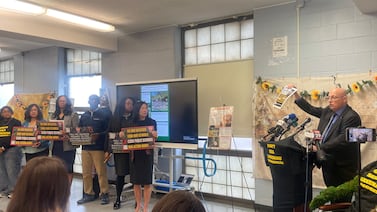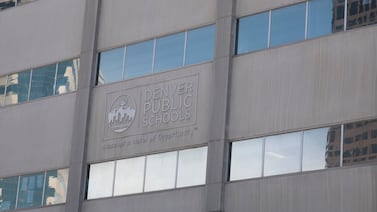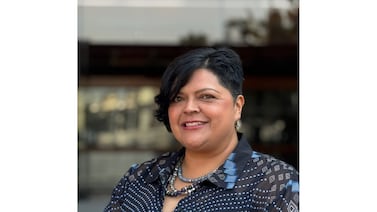Sign up for Chalkbeat Philadelphia’s free newsletter to keep up with news on the city’s public school system.
Shonique Hennigan attended Philadelphia district schools as a young person. There weren’t many other choices at the time, she said.
But her kids — like other Philadelphia students — have hundreds of possible options, one advocate estimates.
The challenge now, says Hennigan, is figuring out what school to choose: Which is the right fit? The right location? Which will offer her kids the safest, best chance of succeeding academically?
Those are the questions facing not just Hennigan, but families across the city as school selection season gets underway. Parents and experts say Philly families are often overwhelmed by their choices and the complicated systems necessary to choose a school — and they want more help navigating the process.
That means stress and anxiety for parents and students, and the potential to miss out on opportunities because the system can favor those with the resources, time, and means to fully engage with it.
At this year’s K-12 School Fair at the Philadelphia Convention Center on Sept. 20, Chalkbeat spoke to more than two dozen families about school choice in the city and what it feels like to go through the school selection process. The district’s application process — which allows pre-K through 11th grade families to choose a school outside their designated neighborhood catchment school for the 2026-27 school year — closes on Thursday, Oct. 23 at 11:59 pm.
“The reality of it is we have lots of options,” said Stacy Holland, executive director of Elevate 215, a nonprofit education advocacy group in the city. Between traditional neighborhood schools, charter schools, magnet schools, citywide schools, cyber schools, and private schools, Philly has “over 400 options for kids,” she said.
And for scholarships and tuition assistance at private schools, Pennsylvania already has two tax credit scholarship programs. Still, lawmakers in Harrisburg remain deadlocked over the state budget, driven in part by a lack of agreement over school choice policies. State Senate Republicans have repeatedly pushed for a new taxpayer-funded voucher program for private and parochial schools.
“This choice conversation has almost just gotten totally commandeered by the politics of vouchers,” Holland said.
Holland said it’s time for officials and experts to stop looking at choice as a “political issue and more about just a user issue.”
“We need to build a system where parents have an ease of access,” she said.
This month, Elevate 215 launched a new tool called Philly Schools Compass designed to simplify the selection process by allowing families to compare schools and search by grade level, neighborhood, and school type — district, charter, private, and virtual.
The school district also launched its own new Explore tool this summer that allows families to see each district school’s academic and extracurricular offerings.
But even with the tools available, many families told Chalkbeat they’d like the process to be simpler and more straightforward.
Ninth grader Cherish Davis said the school selection process has been “kinda stressful” to go through so far, even with her dad Damon Davis doing his best to support her through the process.
She said she feels like she “partly” has an understanding of what factors would make a good school for her, but she knows there are a lot of options and schools she has never heard of or considered.
School choice process is demanding and complicated
From start to finish, Holland said, the existing school choice process asks a lot of families.
First, parents have to explore “what are the questions you should be asking” to determine what type of school environment would help their children thrive. Are they interested in environmental science? Do they prefer a big school or a small school? Do they want to be close to home or use SEPTA public transit to travel? Do they want to play basketball, join a bowling league, or take up robotics?
Once parents figure out “what I think my kid needs,” Holland said the next step is to determine “how do I go about educating myself” as a parent. That can mean connecting with an organization like Elevate 215, contacting the school district with questions, building a detailed spreadsheet, talking to fellow parents, or visiting different schools in-person. But all of that takes significant time and energy — for working parents and those with fewer resources, those barriers can be prohibitive.
After a family has a list of schools they like and fit their needs, they can apply through the district’s school selection application where they rank their top five choices of district schools. For charter schools, families can use the Apply Philly Charter application system and apply to up to 15 schools through that process. Both applications rely on a lottery system but have different deadlines.
Most private schools have their own, separate application process and may require a parent interview. Neighborhood catchment schools do not require any application and families can simply go to that school to enroll.
Once the application process is concluded, accepting a seat can be an additional challenge. Students can be waitlisted or receive multiple offers from various types of schools and tight deadlines to accept.
At the school fair, parents Stacey and Brock Marshall said Philly offered a good variety of choices for their two sons in the ninth and fifth grade, but they wanted help navigating the system.
One thing that could be useful, they said, is more “bullet-pointed information” in an easy-to-digest format.
Nicole Marion, who has a ninth grader, said she definitely feels overwhelmed by all of the options. She said the pressure to make the right choice for her child led to her feeling “a lot of anxiety” this year.
Parents also told Chalkbeat they worry about school safety, low reading and math scores, and crumbling facilities — all of which adds to the stress and pressure to choose a “good” school.
Philly families are looking for more clear-cut information
Some of that anxiety has been ramped up by conservative messaging from local groups and the Trump administration.
The conservative Commonwealth Foundation has lobbied aggressively for expanding Pennsylvania’s school choice policies in recent years, saying in several press releases that students are “trapped in failing schools” across the state.
Last year, the Commonwealth Foundation debuted digital billboards over major highway routes in Philly urging Pennsylvanians to support a proposed state-backed scholarship that eligible students could use to pay for tuition and fees for attendance at participating private schools.
Philly families already have access to the Children’s Scholarship Fund of Philadelphia, a privately funded program that gives scholarships to low-income families to attend tuition-based schools via another lottery process.
But the families Chalkbeat spoke to say they’re not looking for an escape from the current school system — they’re looking for help navigating it.
Holland said to help relieve some of the stress and uncertainty from parents’ shoulders, the city’s number one priority should be improving the quality of schools currently available to families, as well as making the system more user-friendly.
“We have work to do,” Holland said. “But it doesn’t mean there’s not options for families to choose from.”
Parents Jessica and David McDermott said the school choice process can be overwhelming. They want to give their daughter agency in the decision-making but they said they’d appreciate more clear-cut information.
The McDermotts said they’re “still confused” about the district’s ranking process. They feel like there is “plenty of choice” but not enough transparent information about all of the offerings.
“No one can say which school is going to be good,” Jessica said. “You have to think about your core values and what’s important to you.”
Carly Sitrin is the bureau chief for Chalkbeat Philadelphia. Contact Carly at csitrin@chalkbeat.org.






